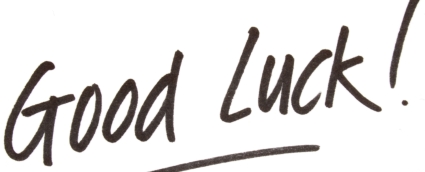Today’s guest post about self-publishing is brought to you by author and game designer Jess Hartley. Jess is a professional writer who is experimenting with different options to expand her readership and engage existing fans.
Due to recent trends in technology and on-line marketing options, it is easier for a writer to self-publish today than ever before. Whether entirely on their own, or with the help of a plethora of book printers and retailers that specialize in small print runs, Print on Demand (PoD) technology or electronic publishing, almost anyone can set out to publish their Great American Novel and have physical copies in their hands in a matter of weeks, if not days. Some publishers brand self-publishing as the demon-child of the mainstream publishing industry, an evil to be avoided at all costs. Others (often those who are trying to encourage authors to print books through their services) rave about the mainstream publishing industry as archaic and tout their avenues as the easiest and fastest ways to get published.
So, who’s right?
The answer is found, as it often is, somewhere in the middle.
There are times and circumstances where producing your own material is the best choice. And situations where it may seem like the best choice, but really isn’t.
Self-published work may be right for you if:
You’re writing for a very niche market.
If you are interested in creating either fiction or non-fiction materials for a very specific community or small interest group to which you already have established ties, self-publishing might be a good choice for you. If, for example, my parents wanted to write a book about calling and cueing square dances, they probably won’t be able to sell it to a mainstream publisher. The niche market for their book would be just too small for most publishers to consider. However, since they’re already well-established in that niche, and have both the contacts and opportunity to market such a book to its most likely audience, it might be a good opportunity for them to do so as a self-published project.
Histories of a local area, or other projects specific to a certain town, landmark or attraction may be a great idea for that area, but not marketable anywhere else. A friend of mine recently published a book on ghost hunting in SE Arizona, which is selling like hotcakes through her ghost tours and local shops, but would be of little interest to someone from Michigan who’d never been to the area.
Your work is not in a form that is easily marketable.
Poetry, flash fiction, novellas and short stories suffer from similar challenges when it comes to publishing. While there are certainly some publishers who produce these types of works commercially, the competition for a space on their pages is fierce. Many anthology publishers are seeking increasingly more “big name” authors to include in their collections, in hopes of boosting sales, which has caused lesser-known authors to seek out different markets. Unfortunately, several poetry, flash fiction and short story markets pay at or below professional rates (if they pay at all.)
If you’re writing for one of these genres, it’s a good idea to do your research and find out what is and isn’t working in the current market to apply that to your own publications. If five, long-time poetry magazines have folded in the last year, creating a cookie-cutter publication of that sort may be a challenging business model for you. Before you self-publish, find out what’s working and what’s not, and learn from others’ mistakes and losses to avoid suffering from them yourself.
You already have an established readership or distribution model.
Even for those who write in the traditional publishing industry, the restrictions on commercially-produced projects keep us from being able to release what, when and how we would like to. The bigger a publisher is, the more concern they have to have with the profitability of any given project, and the more likely they are to have to “think big” in terms of print runs, marketing, and overhead.
Self-published materials can get into an established audience’s hands faster and with less restrictions than if an author were to go the traditional route. Additionally, when you self-publish you can customize your project to your reader’s desires with a lot more flexibility than if that same project was published through a large publisher. As a self-publisher, your “share” of the profit can (but is not always) be larger. However, this approach really works best if you’ve got a readership or distribution model already in place.
While some creators may thrive on marketing their wares book-by-book, it can be very challenging (and depressing) to learn that folks who have never heard of you and don’t know anything about your writing are rarely interested in paying money to read your work. If the writer has used a traditional printing paradigm (i.e. you pay the printer then hope to sell enough books to earn back your investment and make a profit) it can be a very expensive lesson to learn.
If, on the other hand, you have an established readership, self-published materials can be a great way to provide additional content to them, especially work that wouldn’t be feasible to produce through traditional means. My recent fiction effort, The Shattered Glass Project, is an experiment in this sort of model–providing established readers with the opportunity to directly support and be involved with the creation process.
A short story read only by those who are willing to invest as its being created? A series of poems written from the perspective of an established character? A game “ransomed” and released when a certain fund-raising level has been met? A novella that acts as a prologue for an upcoming novel? All of these can and have been done successfully by writers with established readers who are hungry for more material.
Self-Publishing is probably NOT the right choice for you if:
You believe that self-publishing is a way to avoid all the challenges of the traditional publishing industry.
There are a lot of challenges that writers face when seeking mainstream publication. Even after you’ve finished your novel, edited and revised it, buffed it to a high polish and written that dreaded query letter, you still have to find an agent or publisher who loves it enough to invest time and/or money in it. From agents blogs, the average offer rate seems to be somewhere under one percent – that is to say, out of every 100 queries or pitches received, 99% of them will receive some form of rejection. And once a writer has found representation, there’s still no guarantee that the agent/writer team will be able to place the book with a publisher.
It’s no wonder that many authors think that self-publishing is the answer to their prayers. Someone who receives 100 rejections on the novel they’ve spent years writing and which represents the pinnacle of their creative expertise, often finds it much easier to think that something’s wrong with the industry, than with their work. When self-publishing companies and printers say things like “we can have your book ready in a week, guaranteed,” it’s an intoxicating siren-song to those who have struggled for months or years to get someone in the mainstream industry to give them so much as an approving word.
But easy is not always best.
While agents and editors may seem like stumbling blocks to publication when you’re receiving rejections, they serve as a filter to catch and weed out the large portion of submitted materials which are simply not ready for commercial publication yet. Those who, rather than working to improve their creation to publishable levels, seek to do an “end run” around these obstacles, may get to see their words in print (usually at a hefty cost to their own pocket book.)
But their true goal – becoming a creator of publishable works, and a professional writer — is unlikely to be obtained in this fashion. Producing a product yourself–one which you either have to sell personally, or which is only available by special order through mainstream bookstores–is not a substitute for being published through a traditional publisher. And, it isn’t the “foot-in-the-door” to other publishing opportunities that many self-publishing companies market it as. Traditional industry professionals don’t usually see self-publishing as “published”. They see it as “couldn’t get anyone else to take my work, so I paid to have it printed myself.”
Learn what is right for you.
Your greatest chances for success with a self-publishing project come when you are realistic about the challenges and opportunities that self-producing your work brings with it. Don’t turn to self-publishing because you’re frustrated with mainstream publishing and think it will be faster/easier/more profitable to do your own project. Learn what does and doesn’t work as self-produced material, and use those to determine if self-publishing is right for you.
About Jess Hartley
For the last ten years, Jess Hartley has worked as a novelist and freelance writer, editor and game developer.
She has created game material and fiction for White Wolf Publishing, 12 to Midnight Games, Mind Storm Labs’ and Margaret Weis Productions on the Supernatural RPG line.
On an independent basis, Jess also writes “One Geek to Another,” a weekly etiquette and advice column for modern geeks, and authored “Conventions for the Aspiring Game Professional, an e-book designed to help those who are interested in working in the industry. She also guest-hosts “Out of Character,” a weekly gaming podcast that is part of the Pulp Gamer Network.
Her current independent efforts include The Shattered Glass Project, a fae fiction experiment based on a reader-sustained, patronage model.
Jess lives in Arizona, with her family and a menagerie of other interesting creatures, where she participates in a plethora of strange and curious pastimes which often make her neighbors and acquaintances scratch their heads in confusion.
To learn more about Jess, visit her website at www.jesshartley.com.


 Three Tips For Getting Published from BubbleCow
Three Tips For Getting Published from BubbleCow